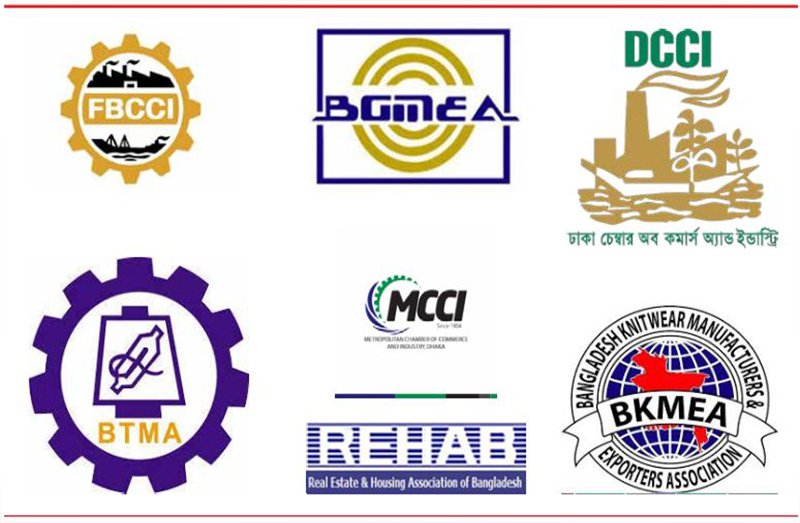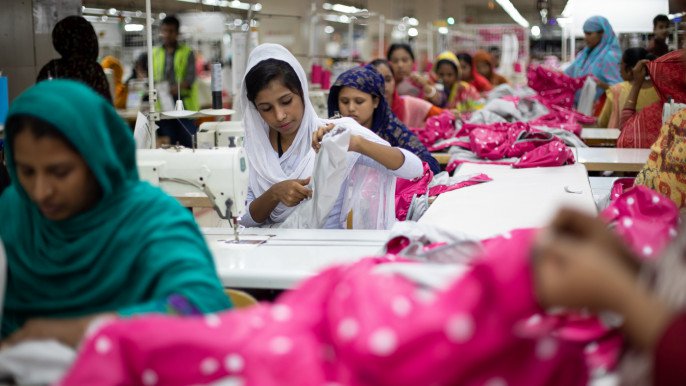Published in Dhaka Tribune on March 07, 2018

Negative attitudes towards women’s business leadership must be changed
Amid much discussion of women’s economic empowerment, women’s representation in Bangladesh’s trade organizations remains low, leaving women entrepreneurs’ voices unheard.
The low number of women leaders in the trade bodies is disappointing when the prime minister, opposition leader, and speaker in parliament are all women.
There are only six women on the current 61-member board of directors of the Federation of Bangladesh Chambers of Commerce and Industry (FBCCI), the country’s apex trade body.
There are no women at all in some chambers and associations. However, the MCCI has set an example by electing women as president several times.
Usually, initiatives and decisions are taken in these trade bodies to ensure better policy support from the government so that businesses can run properly.
Due to the lack of representation, women entrepreneurs cannot raise their voices for the betterment of women in the business community.
Why is women’s representation absent in trade bodies?
Leading women business leaders and experts blamed the absence of women’s representation on boards on the absence of regular elections in trade bodies and patriarchal attitudes towards women.
“Patriarchal attitudes towards women are one of the great barriers to women’s leadership in business organisations. The people who are in the driving seat do not appreciate the caliber and contributions of women,” FBCCI director Helena Jahangir told the Dhaka Tribune.
Women’s participation at the decision making level is not ensured either, said Helena, urging the authorities to create a more supportive environment for women.
Women board members are often given charge of less important tasks. Most chambers and associations have no women in top positions such as president or vice president.
Women leaders said the government should take steps to ensure that trade organizations hold elections on a regular basis.
“If we look at the recent trend, there has been no direct election in trade bodies such as DCCI, MCCI, BGMEA, BKMEA, REHAB, BTMA, and other associations across the country. As a result, women cannot run for leadership positions. The selection committee is dominated by men and they do not select women,” a former women director seeking anonymity told the Dhaka Tribune.
Citing BGMEA’s example, she said its previous board included women leaders who won through direct election.
It is found that in 47 out of 64 district chambers, committees were formed without elections, while 5 chambers witnessed partial voting. Direct voting was only held in 11 chambers. Leading associations such as DCCI, MCCI, BGMEA, BKMEA, REHAB, and BTMA did not hold any elections in recent years.
Status of women in trade organizations
According to the World Economic Forum, in 2017 Bangladesh topped the list of South Asian countries in gender equality and ranked 47th among 144 nations, showing remarkable progress in gender parity for legislators, senior officials, and managers as well as professional and technical roles.
However, the present leadership of women in trade and commerce is lower in Bangladesh.
BGMEA, a platform of 3.5 million workers, of which 60.8% are women, has no women representatives on its current board. The Dhaka Chamber of Commerce and Industry (DCCI) and Bangladesh Knitwear Manufacturers and Exporters Association (BKMEA) also do not have any women members on the board.
REHAB has only one member, MCCI has two women members, and Bangladesh Textile Mills Association has two members on the board.
“There were women on the previous board. They are unwilling to come as they cannot give much time and are not capable of handling the responsibilities,” BGMEA president Siddiqur Rahman told the Dhaka Tribune.
“If they do not want to participate, we cannot force them to assume leadership positions,” he added.
However, the women entrepreneurs rejected his comment, saying that most of them are running their businesses successfully.
“As a woman, I run my businesses effectively. I also performed well as a board member of BGMEA,” said Vidiya Amrit Khan, former director of the BGMEA.
“The consideration for an eligible candidate in representing the trade body should not be based on gender. We should consider one’s quality, capability, and education instead of gender. It is time to think about performance,” she added.
How to ensure an enabling environment for women
Some women find it very challenging to be in the driving seat due to social constraints coupled with negative mindsets about women’s performance.
Hence, a congenial atmosphere and proper policy can increase the effective participation of women in the trade organizations.
“There is a large number of women entrepreneurs in the apparel industry and other sectors. But there are hardly any women in the trade bodies to speak about our needs and demands,” Selima Ahmad, president of the Bangladesh Women Chamber of Commerce and Industry (BWCCI) told the Dhaka Tribune.
To empower women in trade organizations, the government should include a provision in the trade organization rules making it mandatory to have a certain number of women on the board, she said.
“The more women engage in business, the more businesses will develop,” Selima added.
Both men and women in the business community demanded direct elections in every trade organization so that they can choose their leadership without consideration of gender.
“I think it is time to rethink the gendered idea of leadership in business as our sons and daughters are both entering the world of business,” said former BGMEA president Abdus Salam Murshedy. “We should create equal opportunities for all members of the new generation.”
 CPD RMG Study Stitching a better future for Bangladesh
CPD RMG Study Stitching a better future for Bangladesh




